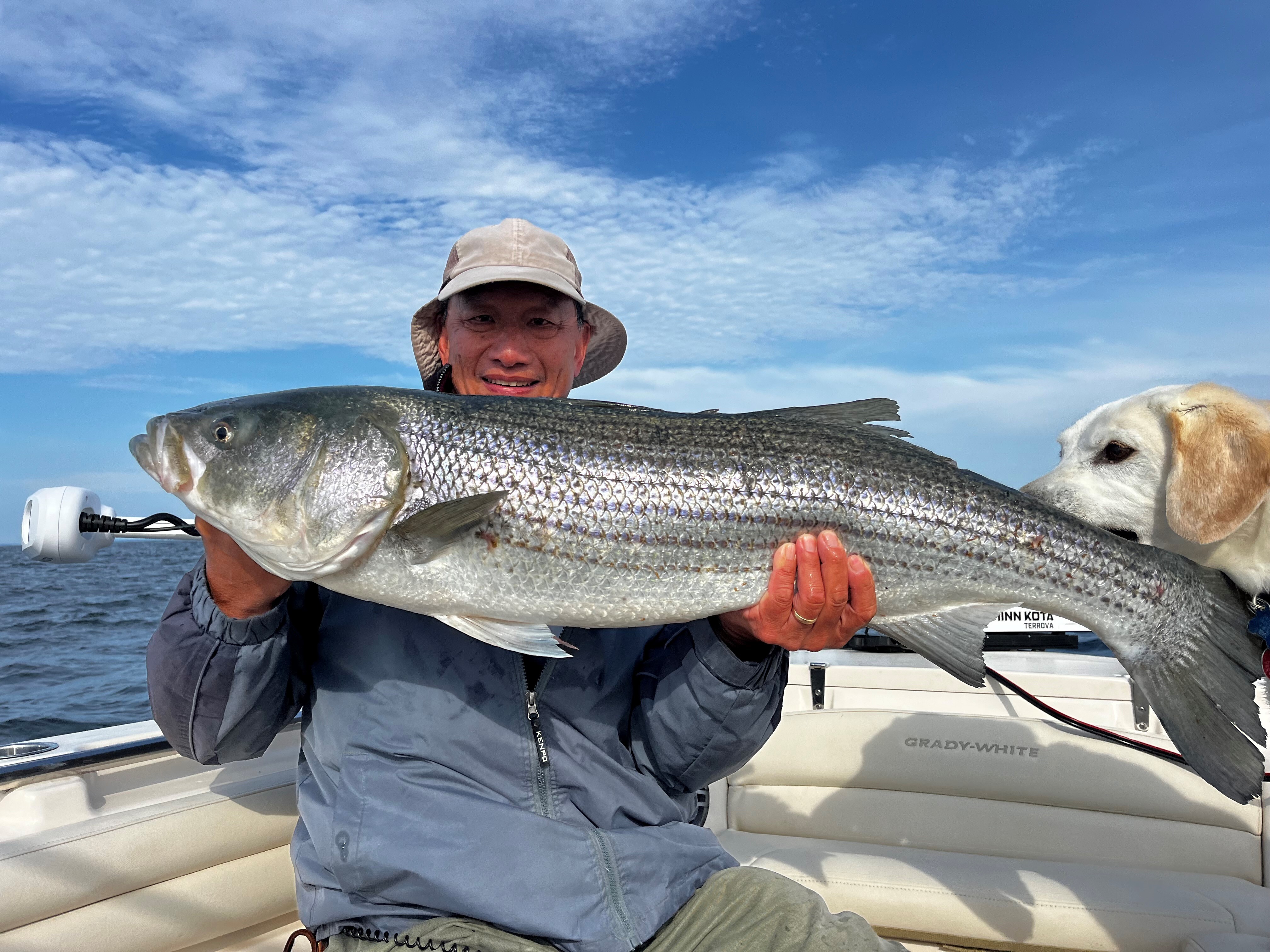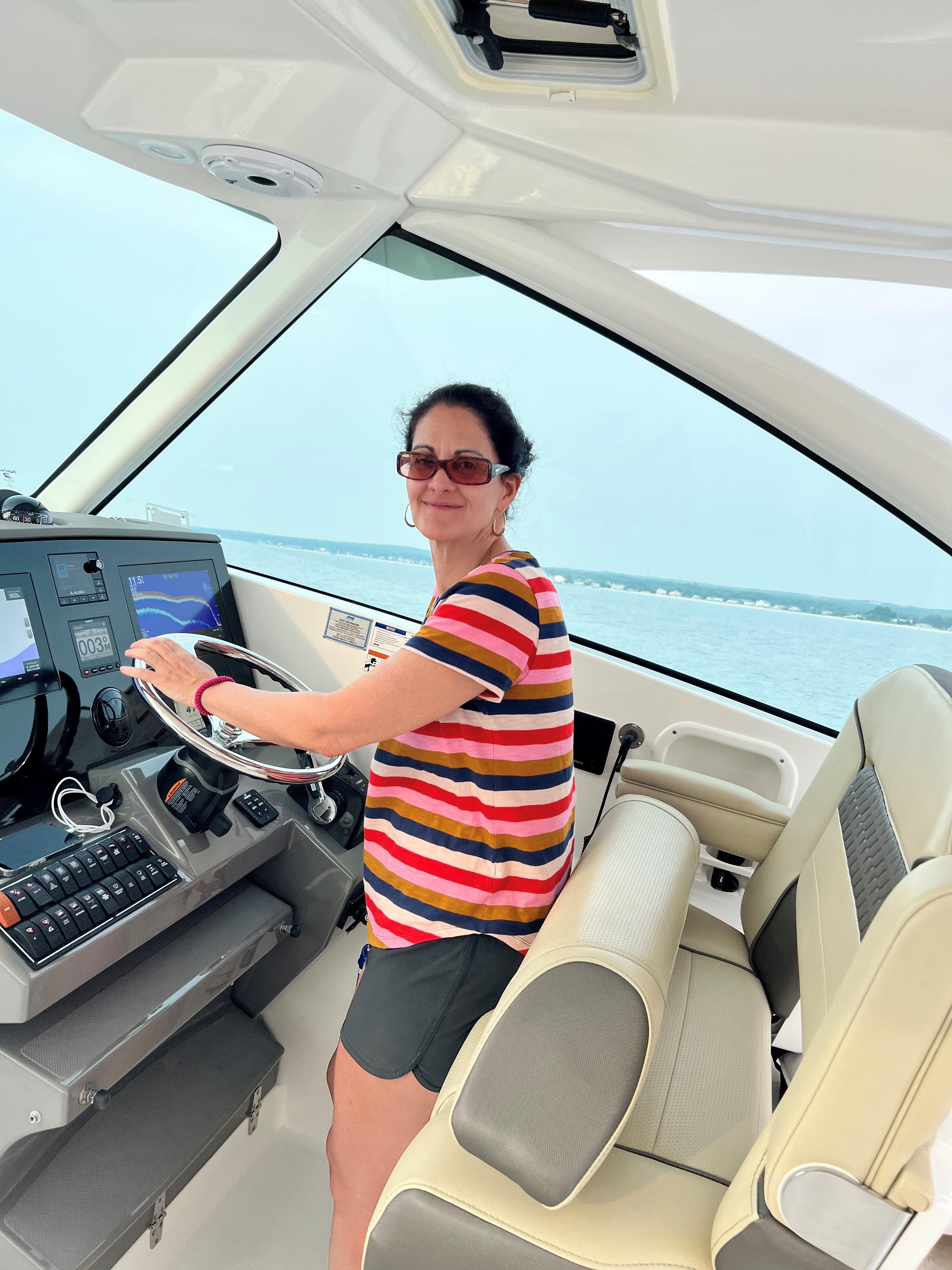Understanding the Real Cost of Fuel for Your Fishing

What’s the Real Cost of Fuel for a Fishing Boat?
Understanding the True Cost of Fuel for a Fishing Boat
If you’re a fisherman or woman in Long Island, you know the thrill of setting out on the water—whether you’re chasing after your favorite catch or just enjoying a day on the boat. But, as you’ve probably noticed, something about fishing trips has been getting more expensive lately. No, it’s not the tackle, the boat, or even the snacks—it’s the fuel.
You’ve likely found yourself staring at the pump, wondering just how much your fuel expenses are really adding to the cost of your fishing adventures. It’s frustrating, isn’t it? You want to enjoy the open water, but the rising fuel costs can leave you feeling anxious, knowing that each trip is costing more than you anticipated. Maybe you’re even avoiding longer trips or reconsidering your weekend fishing plans because of how much fuel will set you back.
At Strong's Marine, we understand this concern. As a fourth-generation boat dealer on Long Island with over 80 years of experience, we’ve seen firsthand how fuel costs affect boaters. We’ve helped thousands of customers understand their boating costs, and now we’re here to help YOU break down the real cost of fueling a fishing boat. By the end of this article, you'll know how to estimate fuel expenses, identify ways to reduce them, and even learn about some alternative options for more efficient and eco-friendly boating.
Let’s dive in and start understanding what affects fuel costs and how to get the most out of your fishing experience without breaking the bank.
Factors That Affect Fuel Costs for Fishing Boats
Fueling a fishing boat isn’t just about filling the tank and hitting the water. Several factors can influence how much you end up paying at the pump. Let's break these down:
Boat Size and Engine Type
The size of your boat plays a big role in how much fuel it uses. Bigger boats, especially those with multiple engines or larger motors, tend to burn more fuel than smaller boats. For example, a 40-foot fishing boat with twin engines is going to use more fuel than a smaller 20-foot boat with a single engine.
Similarly, the type of engine you have makes a difference. Older, carbureted engines often burn more fuel than newer, more efficient fuel-injected engines. Investing in a more modern engine might be more expensive up front, but it can save you money on fuel over time.
Fuel Efficiency and Consumption
Fuel efficiency is all about how much fuel your boat consumes per hour or mile traveled. The more efficient the boat, the less fuel you’ll need to reach your destination. Some boats are designed specifically to be more fuel-efficient, while others, like high-performance sportfishing boats, are built for power, which can come at the cost of higher fuel consumption.
To get a sense of your boat's fuel consumption, most boaters look at the "gallons per hour" (GPH) or "miles per gallon" (MPG). For instance, a fishing boat that uses 10 gallons of fuel per hour will cost you more over a long day of fishing than one that uses 5 gallons per hour.
Distance Traveled and Duration of Trips
The longer your trips, the more fuel you’ll use. Simple as that. If you’re heading out for a full day of deep-sea fishing or cruising to a far-off location, your boat’s engine will be running longer, which will increase fuel costs.
Also, consider whether you’re idling or cruising at full speed. Idling or moving slowly uses less fuel, while speeding up the engine burns through fuel faster. This is why many experienced fishermen prefer to throttle back a bit when cruising to their destination and only speed up when they’re close to their fishing spot.
How to Calculate the Fuel Cost for Your Fishing Boat
Now that you understand the key factors that influence fuel costs, let's get practical. Here’s how to calculate what you're actually spending on fuel each time you head out.
Fuel Consumption Formula
The basic formula for calculating fuel consumption is:
Fuel Used = Engine Fuel Consumption (GPH) × Hours of Operation
For example, if your boat uses 8 gallons of fuel per hour (GPH), and you're out for a 5-hour fishing trip, the total fuel consumption will be:
Fuel Used = 8 GPH × 5 hours = 40 gallons
Estimating Fuel Costs Per Trip
Once you know how much fuel your boat uses, you can calculate the fuel costs for a trip by multiplying the gallons used by the current fuel price.
If fuel is $4.00 per gallon, and you need 40 gallons for the trip, your fuel cost will be:
Fuel Cost = 40 gallons × $4.00 per gallon = $160
Knowing these numbers can help you better plan your fishing trips and set aside the right budget.
.png?width=2744&height=1874&name=Screenshot%202023-08-31%20at%203.25.22%20PM%20(1).png)
The Impact of Fuel Prices on Fishing Boat Operations
Fuel prices can fluctuate daily based on market conditions. This volatility can make it challenging to predict your boating expenses. The good news is, understanding the broader trends in fuel pricing can help you make more informed decisions.
Fluctuating Gas Prices
Fuel prices are constantly changing, and they can increase due to factors like weather, supply chain issues, or changes in global oil prices. If you’re planning a fishing trip and notice that gas prices are spiking, it might make you rethink your route or how much time you plan to spend on the water.
How Gas Prices Affect Long-Term Costs
Over time, rising fuel prices can add up. If you’re fishing several times a month, you might see a noticeable increase in your overall boating expenses. As fuel prices rise, it’s a good idea to adjust your trip plans or consider investing in fuel-saving options to minimize the impact on your wallet.
Fuel Efficiency Tips to Reduce Costs on Your Fishing Boat
We get it—you don’t want to cut back on fishing trips just because of fuel costs. The good news is, there are several ways you can reduce fuel consumption without sacrificing your fishing fun.
Maintaining Your Engine
A well-maintained engine is a more efficient engine. Regular maintenance, including cleaning or replacing fuel filters and ensuring the engine is tuned properly, can improve fuel efficiency and reduce costs.
Optimizing Your Speed and Route
As mentioned, slower speeds use less fuel. Try cruising at a moderate pace instead of racing to your destination. Also, planning your route carefully can help you avoid excessive detours or unnecessary idling, which also reduces fuel usage.
Using the Right Fuel for Your Boat
Different engines require different types of fuel. Make sure you're using the correct fuel type for your boat's engine to avoid inefficiencies. Some boats are designed to run on premium fuel, while others can work fine with regular gasoline. Always consult your owner’s manual to ensure you’re using the right fuel.
Alternative Fuel Options for Fishing Boats
If you’re looking for ways to further reduce your fuel expenses—and your environmental impact—there are alternative fuel options to consider.
Electric Boats: A Green Option
Electric boats are becoming more popular, offering a quiet, eco-friendly way to enjoy the water. While electric boats are still a bit more expensive upfront, they can save you on fuel costs in the long run, especially if you’re only doing short trips.
Hybrid Engines: Combining Power and Efficiency
Hybrid engines combine gas and electric power, giving you the best of both worlds. They’re more fuel-efficient than traditional gas-powered engines and are gaining traction as a viable alternative for fishing boats.
How to Budget for Fuel Costs as a Fishing Boat Owner
Fuel costs can be unpredictable, but with the right planning, you can manage them effectively.
Creating a Fuel Budget Plan
Create a budget plan that includes estimates for fuel costs. Track your fuel consumption and adjust your plans as needed, whether it’s taking shorter trips or conserving fuel.
Tracking Fuel Usage Over Time
Keep track of your fuel usage over time to identify trends. If you notice a sudden increase in fuel consumption, it might be time to inspect your boat and make sure everything is running efficiently.
Minimizing Fuel Costs Without Compromising Your Fishing Experience
Fuel costs are a reality of owning a fishing boat, but they don’t have to drain your bank account. By understanding what affects your fuel usage, maintaining your boat, and exploring more fuel-efficient options, you can enjoy your time on the water without worrying about how much you’re spending at the pump. At Strong’s Marine, we’re here to help you make smart choices that will keep your fishing trips both enjoyable and affordable.
Ready to Make Waves?
Call Strong's Marine at 631-333-0081 to start your on-water adventure today — or shop our available inventory and find your perfect boat!
Need service or maintenance? Our expert team is here to help — just call 631-791-6150.


%20(36).png)